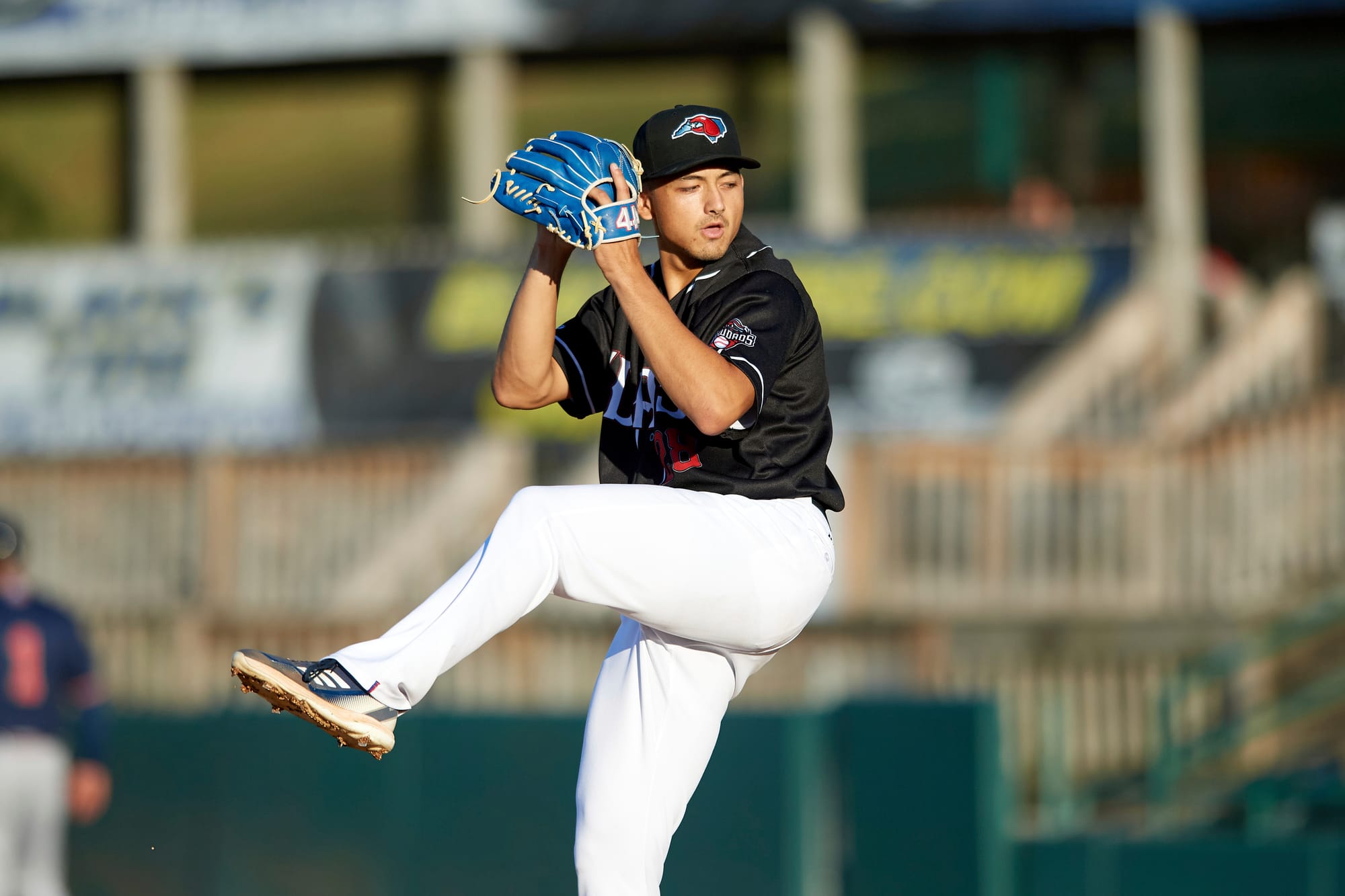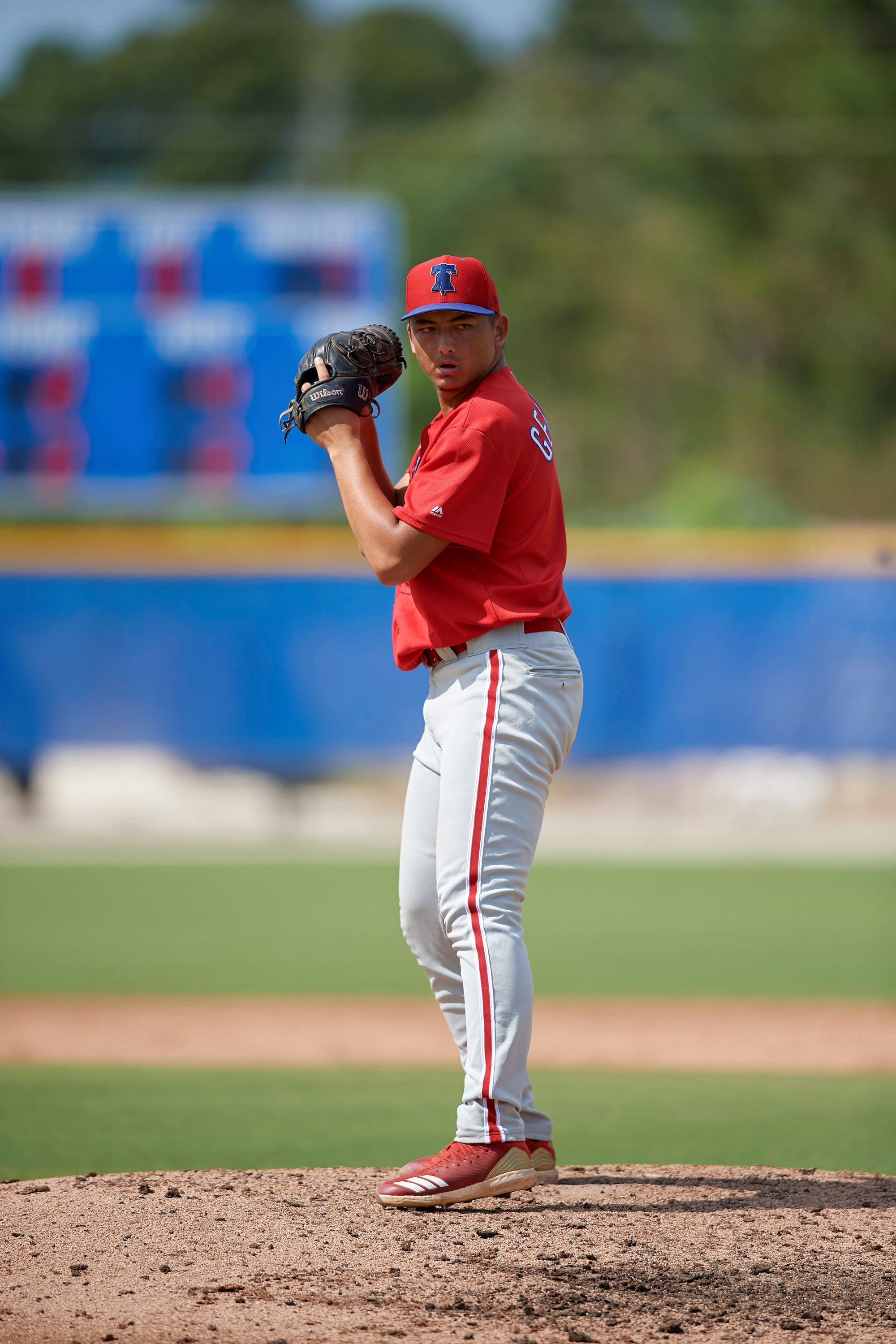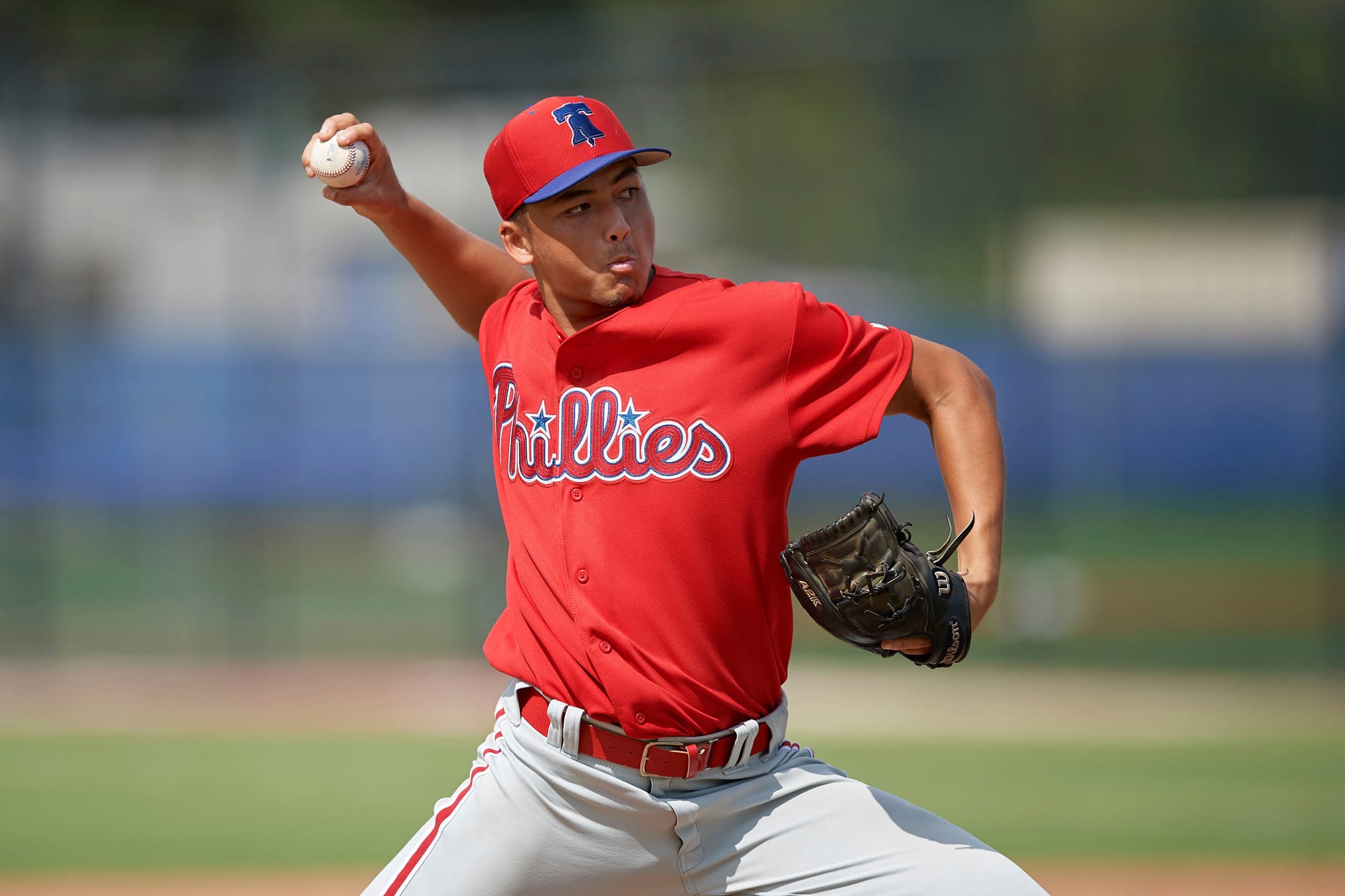The day Josh Gessner signed a contract to play professional baseball should have been the happiest of his life.
It was a childhood dream in the making after putting in years’ worth of work in Australia, a land not known for its baseball culture, where he went to great lengths to redefine himself as a player: switching from shortstop to a hard-throwing right-handed power pitcher who could touch the upper-90s with his fastball. And then there was his $850,000 contract with the Philadelphia Phillies that included the richest signing bonus for a pitcher hailing from the Land Down Under.
So why wasn’t Josh Gessner thrilled with donning his red Phillies hat? Turns out, there were about 850,000 reasons.
On the day of his signing, the 18-year-old Gessner was riddled with anxiety as the pressures that came with professional baseball pulverized his psyche. There were the expectations, too. He promised himself he’d put in the work to make the big league roster as soon as possible (“which, looking back, isn’t the best mindset to have, but that’s the mindset I was in,” he says today.). There were the expectations from the Phillies that one day he might help them win a World Series. There were the expectations he felt from his family and friends back home. Speaking of home, he felt the watchful eyes of his country cheering him on as the one to show that Australian ballplayers can succeed in Major League Baseball.
What if he went through all this and people realized he was a fraud? What if they learned his darkest secret?
It wasn’t long ago that Gessner fell in love with baseball. He was a young boy growing up in Japan watching the Chunichi Dragons with his grandfather. The atmosphere was electric: the team’s band igniting a roaring crowd that damn near felt like it was going to blow the lid off the team’s stadium.
“It’s so electric,” Gessner says. “The MLB is a more chill, relaxed environment. But in Japan, baseball is the number one sport in the country. The atmosphere is unbelievable. Everyone is involved.”

He began to dream in the way kids dream: Maybe I could do that one day.
Years later Gessner’s family moved to Australia, a country whose rich history doesn’t include baseball. But that didn’t deter Gessner. He was lucky that his home was a walk away from a diamond where he practiced with his friends.
He started playing with a club team, then for his district team, then his state team. Gessner starred at every level with both his bat and defense. Before long, he was training at the Sydney Olympic Park — an hour-and-a-half drive from home, and a brutal one at that, but a small sacrifice for a kid with big dreams.
There came a point when Gessner had an honest talk with himself. He was always one of the best players on the team, but did he have the talent to play baseball in either America or Japan? If he was honest with himself, the answer was a big fat no. He decided to pivot.
His skills at shortstop wouldn’t carry him there. But what if he reformed himself as a hard-throwing pitcher? Teams — whether college or professional — are always on the lookout for a guy who can light up a radar gun in the mid-90s, right? Problem was, Gessner’s maxed-out fastball clocked in at 78 mph. No one would dare look at him throwing from the slow lane.
Gessner doubled down. He left Australia to train in America at Driveline Baseball in Seattle, a decision he calls a “big turning point” in his career. The company claims to use technology and data to drive development on the diamond. For Gessner that meant learning how to train as a pitcher and increase his velocity.
When he wasn’t training, Gessner lived with 10 other athletes and spent hours talking baseball or breaking down YouTube videos. Results came quickly. After a year, Gessner had livened his fastball into the low-90s.
Full of confidence, Gessner was ready to showcase his new talents to any coach who would listen. He recorded himself throwing wildly throwing 90 mph fastballs — maxing out at 96 — without a single pitch hitting the strike zone. He blindly emailed over 100 college coaches asking if they’d give a kid from Australia a chance.
He didn’t receive a single response.
But an interesting thing happened. That video made its way to a travel ball coach from Australia, who was bringing his team over for a showcase to the U.S. He asked Gessner to join them.
Gessner caught plenty of attention with each pop of the glove. Wake Forest was interested. So was Stanford. And Harvard. After a couple of deals fell through, Gessner signed with Tulane. Then, the Philadelphia Phillies came calling. It was a dream come true — or so he thought.
During a bullpen session, Gessner worked on his newly improved 90-plus mph fastball. Control wasn’t his specialty, but his ability to blow pitches past batters was undeniable. That is until a 95 mph fastball slipped and drilled the hitter in the head. That pitch planted a seed that would haunt him for years, sowing doubt and fear and anxiety any time he touched a baseball.
Superstitions and baseball go together like peanuts and Cracker Jacks. Those beliefs on the diamond can lead to real-life situations that flat out aren’t discussed.

Take a pitcher in the midst of a no-hitter in the seventh inning. If anyone in the stadium mentions it, you risk jinxing him and breaking up one of the most magical performances in baseball. And no one wants to be that person.
It could be a batter on a multi-game hitting streak who wears the same pair of dirty underwear every game. Sure, it smells, but don’t switch what’s working.
Or a stadium filled with fans who wear their hats inside out late in a game out in hopes of rallying their team to victory. Is it fashionable? No. Is it effective? Meh.
But there’s one superstition — maybe better referred to as an unwritten rule — that transcends all sports. It’s a condition so vile that even whispering its name could curse even the most elite player. It’s ruined players’ careers. It’s forced others to switch sports altogether.
It's the dreaded Y word — the Y-I-P-S.
Speaking its name out loud is akin to saying “Macbeth in a theater or Voldemort in Hogwarts,” quips Ted Lasso, the fictional soccer coach of AFC Richmond after one of his star players is infected with the Condition That Must Not Be Named. “It’s when out of nowhere an athlete can’t do the basic fundamentals of their sport.”
The legend of the evil Condition dates back decades. There was New York Yankees second baseman Chuck Knoblauch whose struggles were so severe he couldn’t throw a baseball to first base. Same with pitcher Jon Lester, an ace by all accounts, whose battle was highlighted on a play in which he tossed his glove — with the ball intact — to the first baseman for an out. And then there was Rick Ankiel, one of the St. Louis Cardinals’ prized pitching prospects in the early 2000s, who lost the ability to pitch during a playoff game. (Ankiel would save his career by ditching pitching for the outfield.)
While Josh Gessner isn’t the first baseball player afflicted by the Condition That Must Not Be Named, he may well be one of the first to suffer its effects at the start of his professional career.
“When you get to professional baseball, all those nerves and anxieties start to build up,” Gessner says. “Usually that’s fine, but because I had that in the back of my head, doubting my abilities to throw, that’s what led to an implosion.”
Gessner was so focused on not hitting a batter that his body went into fight-or-flight mode on the diamond. But instead of fighting or flighting, Gessner froze when he picked up a baseball. Even the most menial tasks caused his body to shut down, like playing catch during warm-ups. When he did manage a toss, he’d sail a ball over his teammate’s head or spike it in the dirt in front of the catcher.
“That was one of the toughest times of my career,” he admits. “Throwing is supposed to be such an easy thing, and I had so much anxiety every time I threw. It became this impossible thing, even as a professional.
“And also, there are all of these expectations, especially back in Sydney. I was a big name at the time, because I had signed for the biggest contract for an Australian pitcher — ever.”
The Phillies were supportive, but it was up to Gessner to figure out what was causing his problem. He turned to Rachel Balkovec, a former minor league manager and current director of player development for the Miami Marlins. Balkovec suffered through her experiences with the Condition as a catcher in college. She taught Gessner how to calm his anxiety and dispel his irrational fears. She preached that one must treat the Condition like any other brain injury, which would require a lengthy rehab process.
He searched inward and found he feared rejection, likely from his upbringing in Japan where he learned to fit in and not stand out. To escape that fear, he actively sought situations where he knew he would be rejected. Could he get a free drink at the local coffee shop? Not likely! Would someone pay for his groceries at the store? No way! And then on the field he’d purposefully sail throws over his teammates’ heads during warm-ups. See, that wasn’t so bad!
“I was desensitizing myself. When you have the [Condition That Must Not Be Named], making a bad throw feels like it’s the worst thing in the world,” Gessner says today. “So, I was training myself that if I make a bad throw then it’s totally fine. I’ll just make a good throw on the next one.”
Gessner is in a better head space these days. He’s also stepped away from the game, unwilling to call it a retirement and more as a break to find himself — to once again find his love for the game.

After a dominant 2021 season, Gessner was plagued by injuries. First, it was his elbow, then a herniated disc in his back that felt like a “mini-explosion” and left him bedridden. Three years later, he’s only now feeling normal again.
Stepping away was admittedly a scary decision. Baseball players don’t just up and leave the game with the expectation there will be a spot for them once they’re ready to return.
But at the time — and even now — it felt like the best move to reset, find mental clarity, and chart his next path. He’s been mentoring young pitchers looking to improve their skills, and he regularly writes about his experiences in his newsletter, The Athletter, to provide a look into the life of a baseball player.
“The most important thing for an athlete is to keep passion for the game. If you lose it, then your life becomes miserable,” Gessner says. “The more you can keep up the passion, the longer you’re going to play.”
He’s taking a month-long vacation back to Japan, back to where he fell in love with the game. He might even catch a game in the Vantelin Dome in Nagoya, home of the Chunichi Dragons, where he once watched games with his grandfather, relishing in the electricity pulsing through the stadium.

When he returns? Well, that’s as good as anyone’s guess. Maybe he’ll start a one-year challenge to throw 100 mph. Maybe he’ll attempt a comeback to Major League Baseball. Maybe he’ll return to Japan to play full-time.
One thing is for sure. A game that once caused him so much mental and physical pain, one that left him defeated and disheartened, has him dreaming again the way kids dream. You know what would be cool? Going out and competing. Being a professional baseball player.